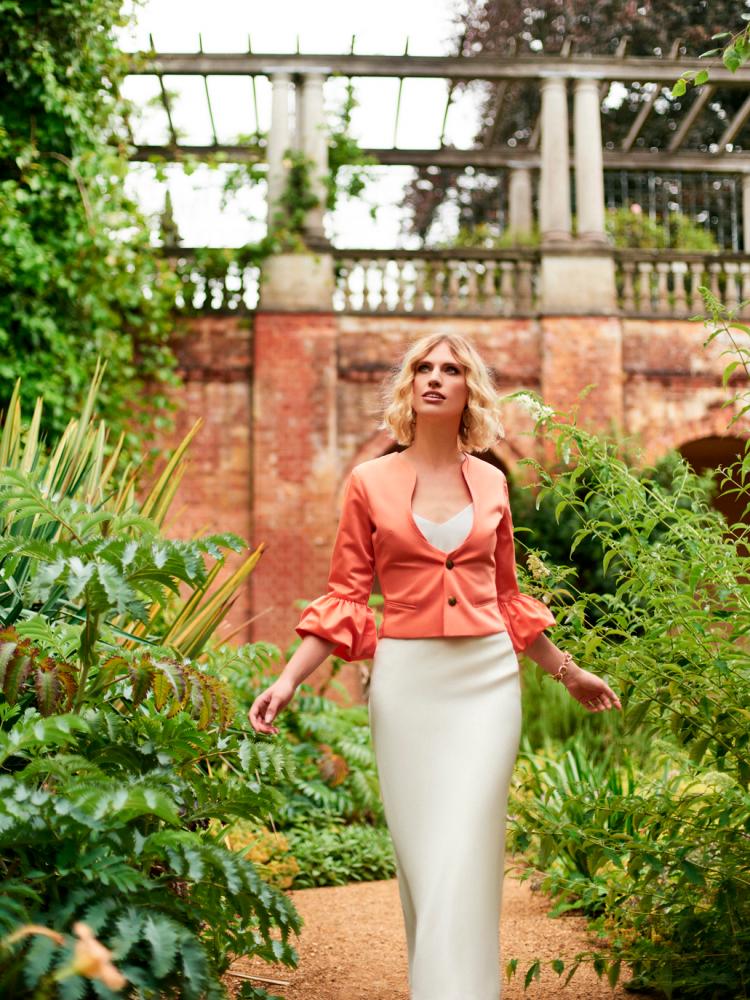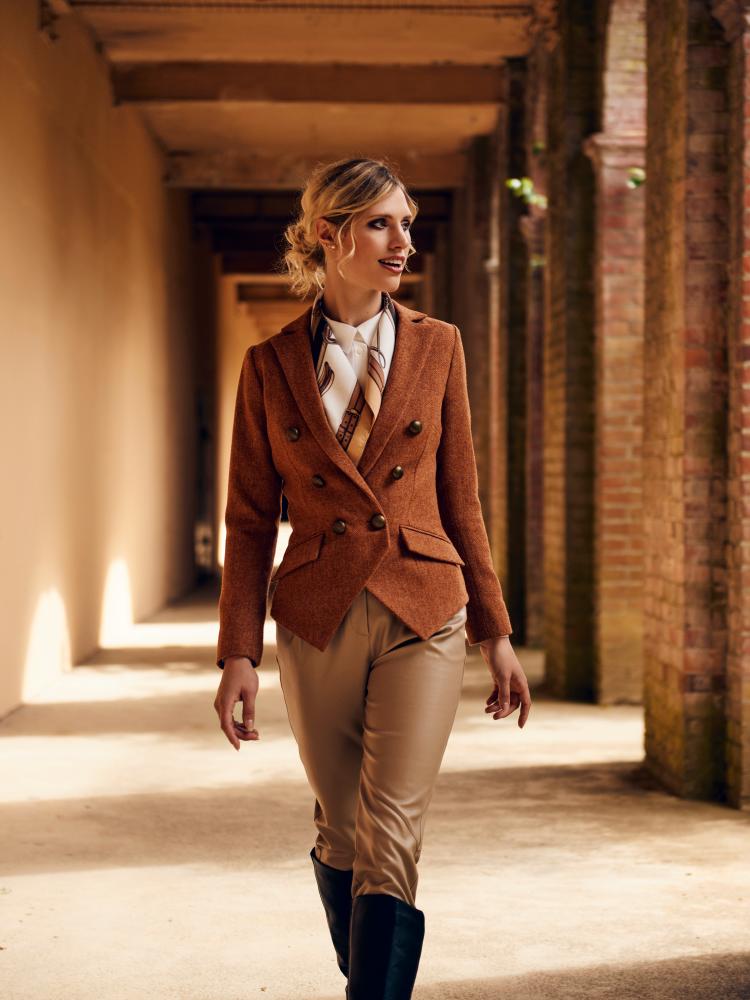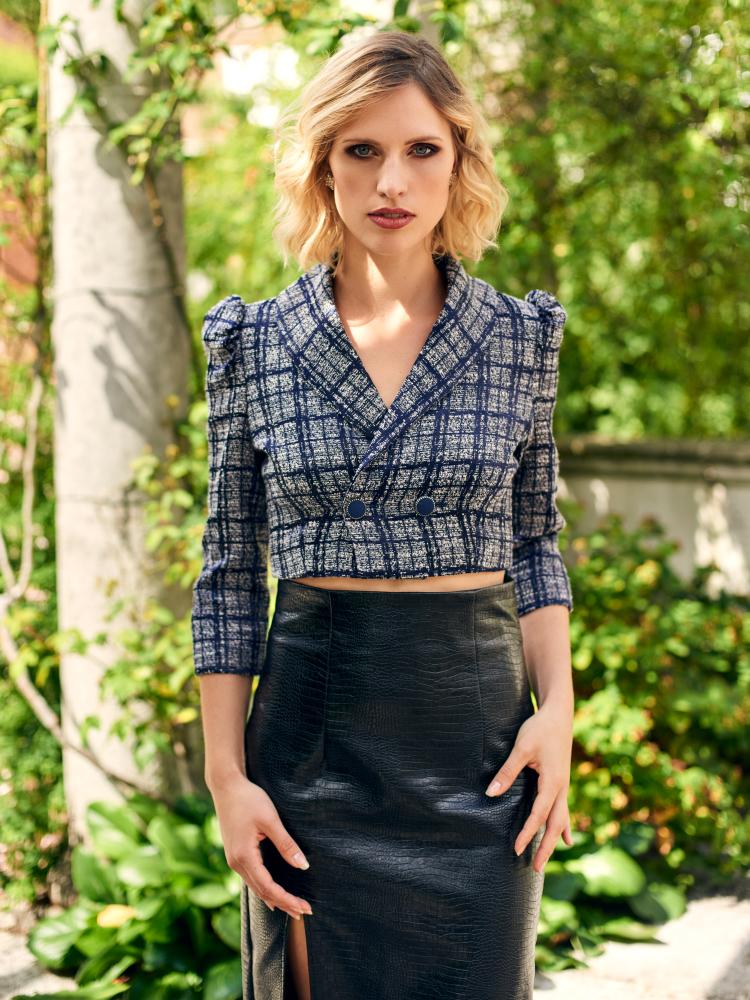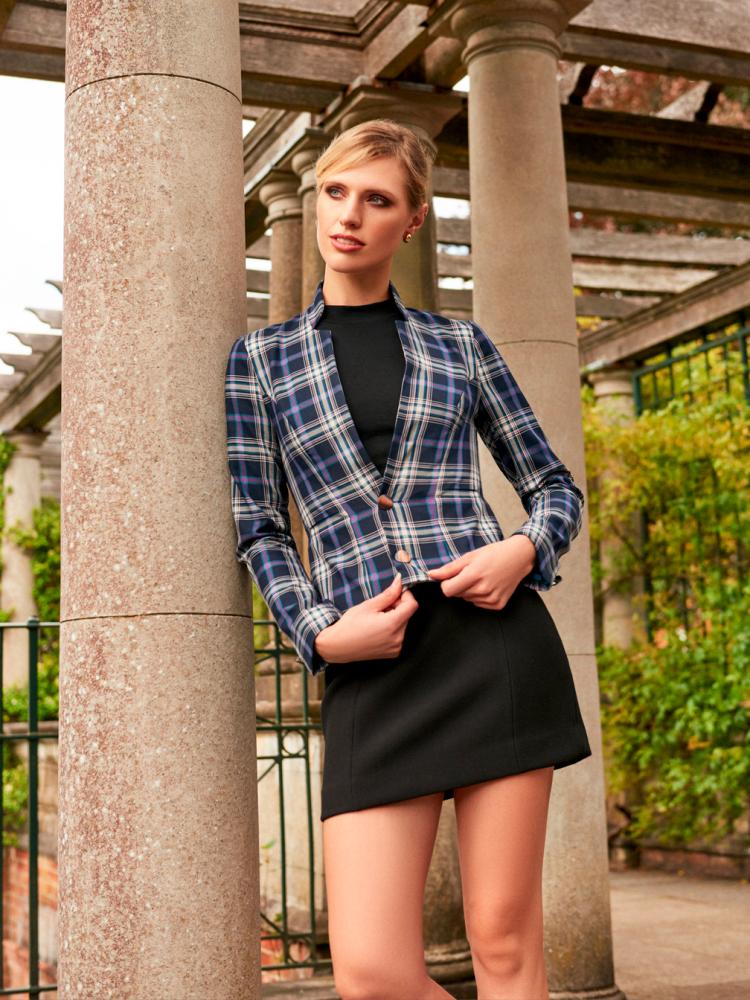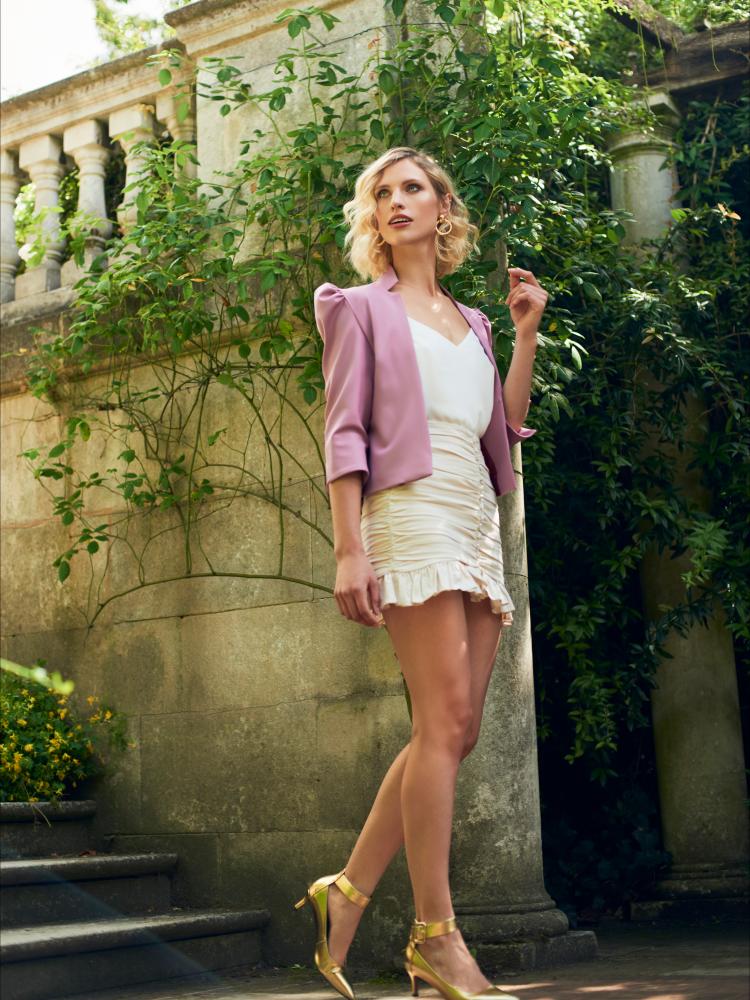LONDON-BASED lawyer-turned-designer Ida Fauziana Karim started her own fashion label for the same reason as many her women in the industry do: her own wardrobe needs.
“My interest in wearing jackets and blazers has been embedded in me since I was very young, from my university days, or even younger,” shares Anne, as she is affectionately known.
“It was particularly important for me during my career in corporate where I would typically have different blazers kept at work, depending on who I was seeing, where was I going or just what impression I was trying to make.’’
She founded the label in October 2020, but has been designing blazers ever since her university days as a law student, before she landed her corporate role in the legal and financial industries.
“So, there is no question about my love for blazers which was well known to the majority of my work colleagues previously.”
This love can be seen in her brand’s debut collection titled Amaranthine, which celebrates women and their individuality. The collection features six different structured designs with feminine and elegant tailoring.
The designs encapsulate the art of power dressing for women, allowing them to blaze the trail from the boardroom to a night out on the town.
With simple yet bold details – from the puffed shoulders and flared sleeves to cropped and double-breasted silhouettes – Anne Karim’s blazers are made for those who want to stand out.
Her designs accentuate not just the form and figure of women, but the very essence of their personality.
As the brand continues to grow in the United Kingdom, Anne is starting to tap into the Malaysian market, hoping to share the one look all women are looking for – confidence.
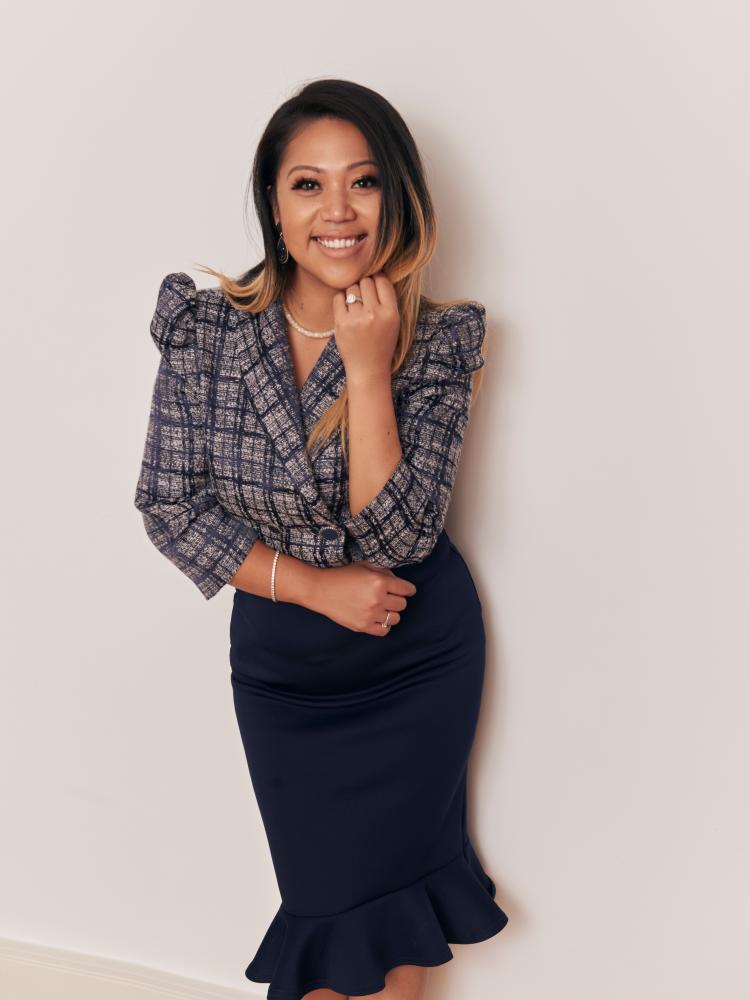
After graduating with a law degree and being in the financial industry for 10 years, why did you become a fashion designer?
“Right, becoming a fashion designer was not a career path that I thought to pursue.
“I had in the past been sketching blazers playfully, after seeing clients or attending work events. The sketching just got more serious during the pandemic when I was figuring out my other passion. Not particularly in fashion design, but blazers.”
How important is an education in fashion for someone looking to get their start in the industry?
“Just like any other industry, having the qualifications will definitely help you to be more knowledgeable.
“My advice is if you don’t [have it] and you still want to pursue it, then just go for it, but never go into it blindly. Do your homework, speak to the experts, go out and expand your network with the suppliers, fashion photographers, stylists, models, etc.
“You will be surprised how much you will learn from them. To me, this is one of the most valuable lessons, as I learnt it directly from those people involved in fashion on a daily basis.”
It’s an unprecedented time to be starting a brand.
“I chose to not let the pandemic stop what I had determined to do in 2020. We had a lot of restrictions, from meeting the team and suppliers, finding a location for the shoot in the UK to auditioning for models.
“But I was lucky to have the support from the people I work with. We used every single opportunity that was available to us at the time, no matter how limited they were, and we made the best out of it. It was very tough, but what an experience.”
How is the brand navigating through the domains of sustainability and overconsumption?
“No one can ignore sustainability. The fashion industry has been one of the biggest polluters of our planet.
“As an ethical brand, we try our best to do our part in making a difference by upholding our ethos ‘We design exclusively and produce ethically’, meaning we don’t mass produce our garments just to please the retail needs.
“It’s going to be a challenge to put our name alongside the bigger brands, but it is just the right thing to do.”
Are you worried about the future of fashion?
“Absolutely. I think the fashion industry has been constantly under fire for overpollution and worker exploitation. And because we live in a capitalist world, many big brands overproduce to meet consumers’ demands, and many consumers are only comfortable buying from these established and well-known brands.
“Consumer sentiment mainly is to follow the fashion trends, disregarding the role each of us has to play in climate change and reducing our carbon footprint. This is precisely why I wanted to introduce Anne Karim to Malaysia, because we need to be more educated on this topic.
“Any small effort will help, and will slowly make a difference. “



